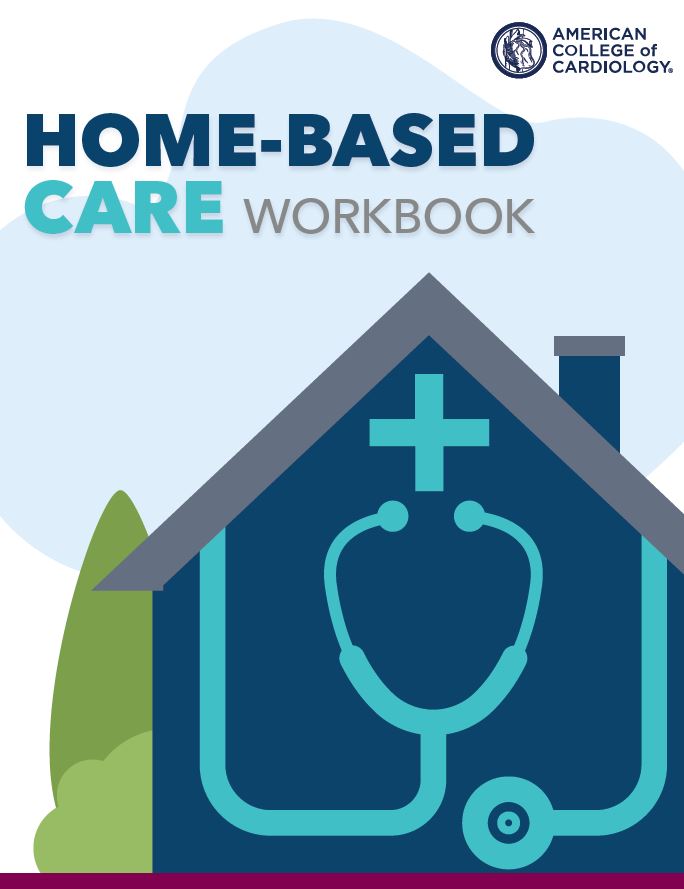HOME-BASED CARE WORKBOOK
The health care landscape has undergone rapid changes in recent years, requiring clinicians and stakeholders to consider innovative ways to provide care in traditional and non-traditional settings. To help navigate these changes, the ACC has created a Home-Based Care Workbook offering cardiovascular care team members tools and resources on how to incorporate high-quality, patient-centered care in the home setting. Such an approach has the potential to improve clinician well-being, while meeting patient demands.
Home-based care refers to any form of medical care that takes place in the home of a patient, with or without additional in-person care delivered in a health care office or other medical facility. During the COVID-19 pandemic, virtual care experienced significant acceleration, driven by increased consumer demand, greater clinician interest, and conducive regulatory changes. While other countries have integrated home-based care models into their health care system, the U.S. had a significant decline in house calls and home-based care after 1997 when benefits were capped to help control Medicare costs.
The Home-Based Care Workbook examines the full spectrum of what providing home-based cardiac care in the U.S. would look like, including:
- Advantages and disadvantages of basic and advanced cardiac care in the home
- Guiding principles and objectives for developing a home-based care program
- Key performance indicators to measure the success of home-based care programs
Other key areas the workbook covers include challenges related to home-based care, the scope of home-based health care, program considerations for home-based care and reimbursement.


